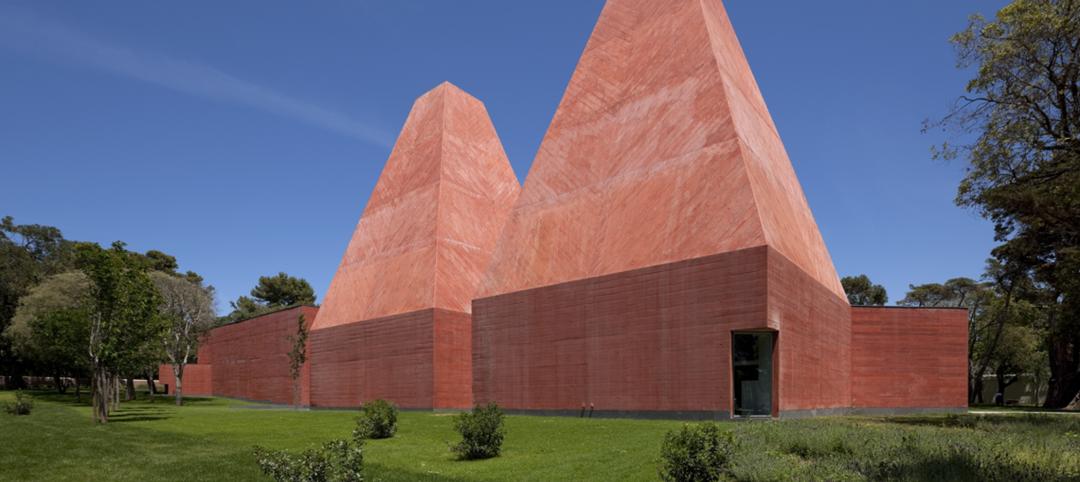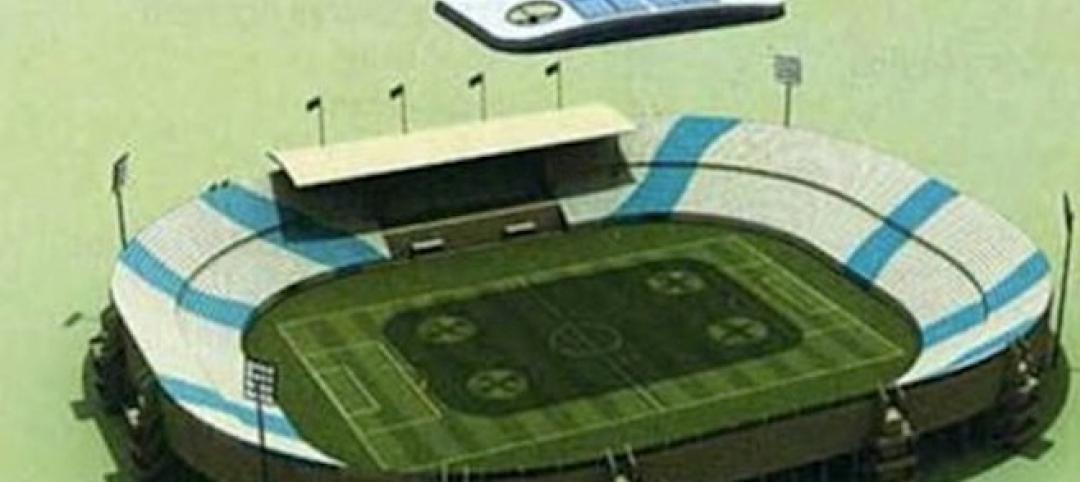Dewberry, a privately held professional services firm, has recently hired James Draheim, AIA, LEED AP BD+C, as president of the firm’s 175-person nationwide architectural practice. Draheim will be responsible for all facets of the firm’s business development, operations, strategic planning, and growth.
Prior to joining Dewberry, Draheim was the senior vice president and national director of the URS facilities practice, a $620 million architectural/engineering design, CM/PM, and international services division. He also spent much of his career with HDR, with his most recent position as senior vice president and managing principal of the firm’s Alexandria, Virginia, office.
With more than 25 years of experience, Draheim’s portfolio includes significant healthcare, higher education, and science and technology projects, in both the public and private sectors. A representative list of clients includes the U.S. Department of Defense, the U.S. Department of Veterans Affairs, the National Institute of Standards and Technology, Johns Hopkins University, Georgetown University, the U.S. Army Corps of Engineers, the National Institutes of Health, and the Mayo Clinic’s Saint Marys Hospital.
“I’m excited to be at Dewberry, and I’m looking forward to growing Dewberry’s architectural practice in support of the company’s strategic goals for market and geographic expansion,” says Draheim.
“In recruiting Jim to Dewberry, we knew that he would bring solid business acumen to the practice,” says Dewberry Chief Executive Officer Donald E. Stone, Jr., PE. “Jim is also a practicing architect who brings a strong portfolio of healthcare, higher education, and science and technology design excellence to Dewberry.” The firm is well known for its depth in these markets, as well as libraries, recreation centers, and criminal justice and correctional facilities.
Draheim holds Master of Architecture and Bachelor of Science degrees from the University of Nebraska–Lincoln. He is a registered architect in 30 states. Draheim is a member of the American Institute of Architects (AIA), Virginia Society AIA, National Council of Architectural Registration Boards, and Society of American Military Engineers.
About Dewberry
Dewberry is a leading professional services firm with a proven history of providing architecture, engineering, and management and consulting services to a wide variety of public- and private-sector clients. Recognized for combining unsurpassed commitment to client service with deep subject matter expertise, Dewberry is dedicated to solving clients’ most complex challenges and transforming their communities. Established in 1956, Dewberry is headquartered in Fairfax, Virginia, with more than 40 locations and 1,800+ professionals nationwide. To learn more, visit www.dewberry.com.
Related Stories
| Apr 5, 2011
Top 10 Buildings: Women in Architecture
Making selections of top buildings this week led to a surprising discovery about the representation of women in architecture, writes Tom Mallory, COO and co-founder, OpenBuildings.com. He discovered that finding female-created architecture, when excluding husband/wife teams, is extremely difficult and often the only work he came across was akin to interior design.
| Apr 5, 2011
What do Chengdu, Lagos, and Chicago have in common?
They’re all “world middleweight cities” that are likely to become regional megacities (10 million people) by 2025—along with Dongguan, Guangzhou, Hangzhou, Shenzhen, Tianjin, and Wuhan (China); Kinshasa (Democratic Republic of the Congo); Jakarta (Indonesia); Lahore (Pakistan); and Chennai (India), according to a new report from McKinsey Global Institute: “Urban World: Mapping the economic power of cities”.
| Mar 30, 2011
China's low-carbon future city
In 2005, the Chinese government announced its target to reduce energy consumption per GDP unit by 20% by the year 2010. After a multi-billion investment, that target has been reached. The Chinese Climate Protection Program’s goal to increase energy efficiency, develop renewable energies, and promote energy savings while reducing pollutant emissions and strengthening environmental protection is reflected in the “Future City” by SBA Design.
| Mar 30, 2011
Is the AEC industry at risk of losing its next generation leaders without better mentoring?
After two or three horrifying years for the AEC industry, we are finally seeing the makings of a turnaround. However, data developed by Kermit Baker as part of the AIA Work-on-the-Boards survey program indicates that between 17% and 22% of design firms are eliminating positions for interns and staff with less than six years of experience. This data suggests the industry is at risk of losing a large segment of its next generation of leaders if something isn't done to improve mentoring across the profession.
| Mar 29, 2011
City's design, transit system can ease gas costs
Some cities in the U.S. are better positioned to deal with rising gas prices than others because of their design and transit systems, according to CEOs for Cities, a Chicago-based nonprofit that works to build stronger cities. The key factor: whether residents have to drive everywhere, or have other options.
| Mar 29, 2011
Chicago’s Willis Tower to become a vertical solar farm
Chicago’s iconic Willis Tower (formerly the Sears Tower) is set to become a massive solar electric plant with the installation of a pilot solar electric glass project.
| Mar 29, 2011
Read up on Amazon.com's new green HQ
Phase IV of Amazon’s new headquarters in Seattle is nearly complete. The company has built 10 of the 11 buildings planned for its new campus in the South Lake Union neighborhood, and is on-track for a 2013 grand opening.
| Mar 29, 2011
Portuguese architect Eduardo Souto de Moura wins Pritzker Architecture Prize
Portugese architect Eduardo Souto de Moura, whose precisely-honed buildings reflect the influence of the late Chicago modernist Mies van der Rohe, is the 2011 winner of the Pritzker Architecture Prize, the field's highest honor.
| Mar 25, 2011
Qatar World Cup may feature carbon-fiber ‘clouds’
Engineers at Qatar University’s Department of Mechanical and Industrial Engineering are busy developing what they believe could act as artificial “clouds,” man-made saucer-type structures suspended over a given soccer stadium, working to shield tens of thousands of spectators from suffocating summer temperatures that regularly top 115 degrees Fahrenheit.












